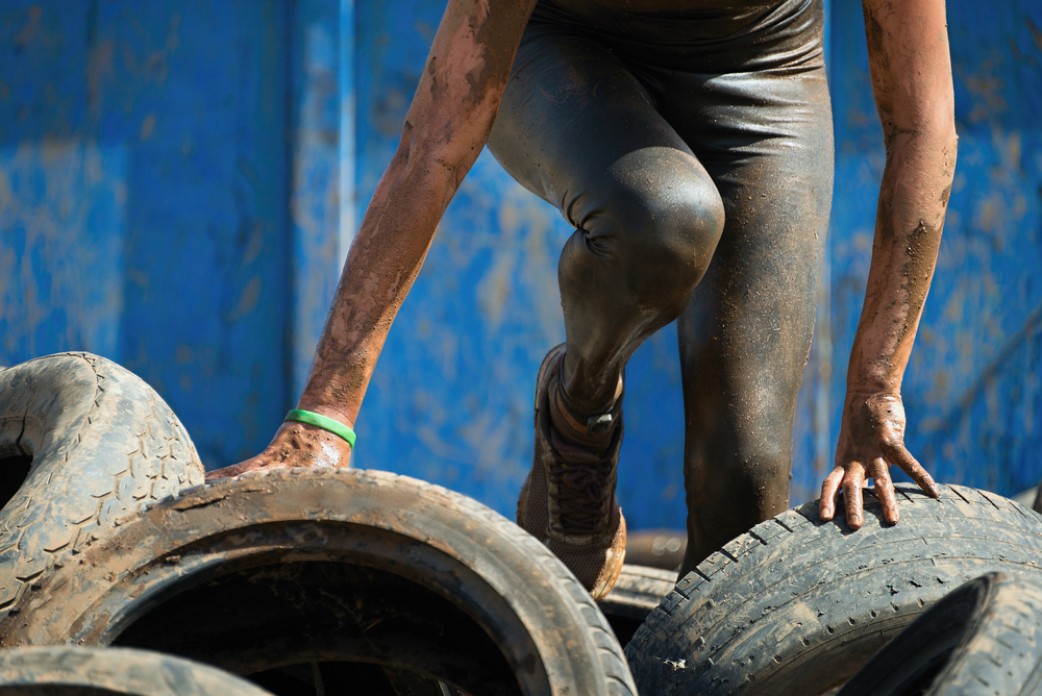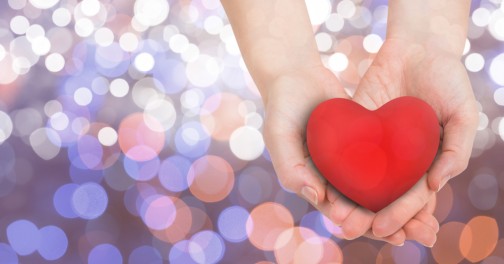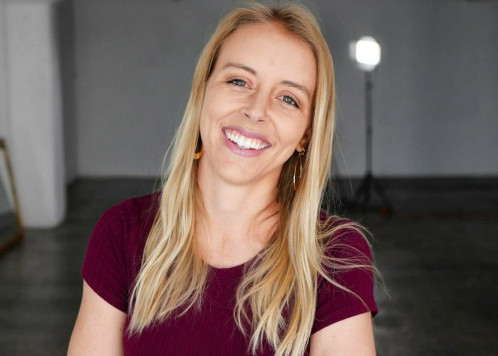When I was thirteen, I was a fat kid who was tired of being bullied, called ugly by girls, getting chosen last for sports and games, and just being slow and lethargic. Then one day I tried a simple run at a nearby school track, and it changed me. I knew if I worked at it, this could be something I’d be good at. At that moment though, I never would’ve believed that exercise would shape my whole life, but it did and it does. I’m a fitness professional, a martial artist, a football player, a bodybuilder and most recently an OCR. (That’s an Obstacle Course Racer—you know, those extreme athletic Spartan events where we crawl through mud, run through water and jump over rocks?) How do you like me now, ladies? I’m not just a Spartan, I’m a Spartan coach!
My active lifestyle has served me well, and never more so than when things in my life went south at age 33. I’d spent my whole life transforming into the opposite of how I’d been perceived as a young man. But I was about to find out who I really was, and my fitness became my saving grace.
In August 2015 my father died of complications from stroke and dementia. He died not at home, but in his room at a nursing home. A nursing home that was just down the street from the hospital that my mother was in at the same time. Mom was dealing with congestive heart failure and she wouldn’t ever have the chance to see her husband alive again.
That day in August, I arrived at dad’s nursing home after a frantic call from my sister. He died shortly after I got there. It hit me then—I had never told my father that I loved him. And he hadn’t told me either, at least not in words. But I wanted—no, I needed to communicate how much he meant to me. I needed to give him something of meaning, something of his son, to take with him. So after a moment I took off the Spartan bracelet I always wore, and I put it on his wrist. I told the nurses who were dealing with the funeral home staff to make sure that the bracelet would not be removed, no matter what.
It’s funny how we learn things about those closest to us after they are gone. Back at my parents’ house, I found Dad’s wallet, and inside it were eight (8!) pictures of me. I’d had no idea. Those well-worn photos moved me deeply, and in my grief, my connection to my father grew. And that connection inspired me to live more fully, to challenge myself even more.

Turning Grief Into Power
A few months later, still reeling from my dad’s death, and still dealing with my mom’s health issues, I went on to earn my Spartan double trifecta. (A trifecta is completing all 3 levels of the Spartan race within a calendar year. A double is doing all three races twice.) But something happened to me during a race in Vermont. The race was a Spartan Beast, an exceptionally tough event of roughly twelve miles, this one with some thirty obstacles.
I was struggling with a really difficult part of the course. I was trying to dig deep, but I was already tired, even though it was still early on. Out of nowhere, I heard my dad’s unmistakable deep southern drawl in my head.
“Boy! You better get on up there! Stop playin ‘round now!”
I took the hill in record time and without stopping. At all. This was my first lesson in how to turn melancholy to motion and grief into power. I couldn’t have known that nine months later I'd be back in the same classroom of life, this time for an even more advanced schooling.
When One Loss Follows Another
My mom had beaten cancer years before, and despite her current health challenges at the time, she’d fought back and managed to get out of the hospital soon after my dad died. But along the way she’d noticed a small, dark marking on the site where she’d received radiation treatment. She’d had every intention to get it checked out, but with everything that'd happened, her own self-care got delayed.
That spot turned out to be a rare form of soft tissue cancer called Angiosarcoma. Over just a few short months it grew into an external tumor that covered her entire breast. In January of 2016 she had a mastectomy. Six months later she died on a Wednesday morning. Losing my mother was the worst fear of my life. I think of myself as a pretty strong person, and when people see me, they see a confident athlete. But when they gave me the news, I told them all to leave. I just broke down and sobbed, in more pain than I have ever felt, more than any other physical challenge I have ever faced. But before I left my mother, I took off my new Spartan bracelet and put it on her wrist.
I tried to go back to work the next day, but I was no good to anyone. Then one of my clients invited me for a run, and that felt just a little better. I took a class taught by my best friend, and it gave me some temporary relief.
Historically we gravitate towards things that feel good to us. After a loss we may want something to ease our pain. We also need to process what we feel and find a way to release it. So we cry or maybe punch a wall or we overeat or drink too much in an attempt to feel better.
But physical activity gives us a productive outlet to target that energy that needs to be released, and it may even help us avoid or minimize depression and illness ourselves. In my case I took to the trails and did personal record breaking runs and climbs. I broke my pull-up record after crying my eyes out.
I even attempted a Spartan Ultra which was a 30-mile challenge on the same mountain where I’d heard my father’s voice of encouragement the year before. Though I didn’t complete that race, it was still a victory, because I discovered that I had more reserves in me than I’d ever imagined. The following year I tackled another Spartan Beast and…finished!

For me, one of the most beautiful things about really moving your body in a time of loss is that the effort and attention required tends to crowd out regret and relieve at least some of the sadness and anger that come naturally with grief. Some might consider obstacle course racing a distraction from the reality of mourning, but for me it’s a way of being completely present in the moment, of activating not just the body, but the mind and spirit. Self-care when grieving should not be underrated.
It can also be a healthier way of diverting your attention from your grief to a goal—something you can hold onto. In “Enter the Dragon,” martial arts movie legend Bruce Lee speaks of channeling feelings into movement or other activity. Tears, despair, anger—they all require energy, but if you can redirect at least some part toward movement, the result can bring lightness and empowerment, even enrichment. And oh by the way, releasing a few endorphins won’t hurt when you just need to get from one moment to the next.
One Key to Living Well After a Loss
After losing both parents, I’ve learned to treat life as a complex adventure filled with peaks and valleys, obstacles, twists and turns. Not unlike a great big ol’ Spartan Beast. I continue to use physical activity to channel and place my energy. And I’ve found that for me, the key to living well is acceptance of all that comes, with a focus on keeping the trinity of mind, body, spirit nourished and well cared for.
Maurice Johnson is a Personal Elevation Coach/Fitness professional who merges life coaching with fitness training. He is the creator of Superhuman: The Class, and you can read more about his brand at Superhuman Soul.
Recommended Memorial Products
- Bedsure Sherpa Fleece Blanket — Ultra-soft sherpa fleece throw blanket offering warmth and comfort during difficult times.
- Unboxme Lavender Spa Gift Set — Thoughtful sympathy care package with lavender-scented comfort items to soothe the bereaved.
- Bearing the Unbearable — A compassionate companion for the heartbreaking path of grief and loss.


-banner.png)






